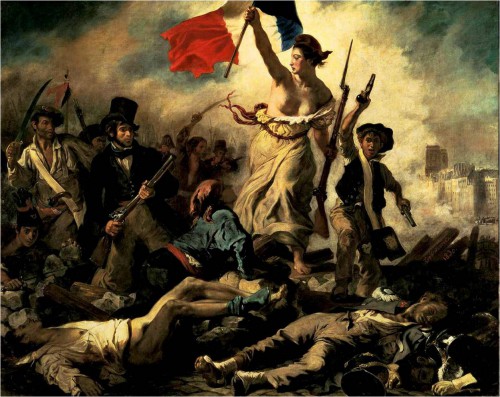
Ben Franklin was close but wrong on life’s certainties. Enoch walked with God and did not see death, for God took him; Elijah was carried to heaven in a fiery chariot; Apple hardly pays a dime. Death is a statistical lock and taxes hard to evade, but there are better bets still. To wit: the Vikings will blow a home playoff game on a missed FG (the Lord has so ordained it), the identities of Rey’s parents and Supreme Leader Snoke will disappoint fans’ Sherlockian strivings, and any public expression of Christian freedom worth the name will inspire a chorus of anemically orthodox tongue-clucking.
Recently I read an article criticizing preachers (including certain unnamed but obviously intended friends and colleagues) for adopting too confessional a stance in their sermons and online writings. That is, they dare name themselves as sinners with specific sins of real consequence, testifying to the particulars of their forgiveness in Jesus Christ. That any Christian should be scolded for this is sad, but I think predictable. Legalists, moralists and defenders of virtue (which is to say, most of us on our best days) will always find objections to the forgiveness of sins. But this article was more disappointing than typical because of its source: fellow servants of the Word, publicly committed to the justification of the ungodly by faith in Christ as the central matter of all Christian teaching.
These are exactly the sorts I’d hope to find as natural allies, not opponents. What is happening? The most glorious of gifts, the word of grace toward one so like myself, and then toward me as well, is dismissed as a cheap shock tactic, clickbait, or worse–possibly glorifying and encouraging sin in the hearer. Faithful preachers are brushed aside as attention-seekers and wannabe bad boys. Perhaps there’s a bit of jealousy here, as competitors within the already crowded Christian blogosphere react poorly to a greater spotlight on peers. But we’re talking about modestly-sized fish in a very small pond–fame and wealth are not at stake. I think it far more likely that it isn’t the publicity but the freedom of these preachers that has incited attack.
It is an astonishing thing to stand before another human being, still less a group of them, and to tell the truth. That is our privilege as Christians. Since we are without shame before God we can speak without shame or fear before one another. The New Testament calls this “boldness”, and it is a true gift of the Spirit, true because it produces truth in us. And the consequence of this truth is freedom. Christian theologians have worked extremely hard to qualify that freedom, to define it in such a way that it loses its danger, but they all come up short. We may be free to serve, free for one another, free in obedience to Christ, etc., but it does no justice to Christ’s freedom and ours to redefine it as the bare equivalent of service, obedience or submission. Only speaking of unqualified freedom will do, freedom so unqualified that even St. Paul only dares qualify it with itself: For freedom Christ has set us free (Gal. 5:1).
This freedom is dangerous, and so all who display it are dangerous. They do not live by the law, and so the usual tools of control and moderation are no good for them. Like our Lord, they are bound to be mistaken for sinners, found among sinners, and at the last to identify as sinners themselves. They may do this joyfully or in sorrow, but above all they do it freely. The trouble, of course, is that few of us display this kind of freedom very often. Christians are not stereotyped as unpredictable and free. Even those who carry the name Luther like a banner are most often found with the enforcers of order, worrying that freedom might break out at any moment and threaten the peace. For me personally, it is a bitter irony that I can preach about the healed leper who ignores Jesus’ warning not to speak (Mark 1:40-45), but show so little of that man’s blessed freedom myself.
I almost called this post, “Fear of a Free Preacher.” There’s a point to be made about the specific freedom of the preacher and the reaction it provokes from Christians, but I like the current title better. Strange as it may sound (especially if you know I’m not much for hip hop), Chuck D’s title track to the 1990 album Fear of a Black Planet taught me a great theological lesson. America’s perverse racial logic, the root of the song’s named fear, is expressed as a sampled refrain:
Black man, black woman, black baby
White man, white woman, white baby
White man, black woman, black baby
Black man, white woman, black baby
The asymmetry of the terms is the point. There is by this scheme no mixture, only contending poles, and one must win out. God’s word of promise follows an oddly similar logic, though it is true and no social fiction. It admits no mixture, no addition, and no qualification. A gift with strings attached is no gift; conditional grace is not grace. We are in every case under either grace or the law, either in freedom or slavery, and so our words take on an extreme character, unbalanced, immoderate. They strike well-behaved people, especially well-behaved Christians, as unwise or immature. But this is not any invention or rhetorical preference of our own. Jesus has been clear on the matter: you don’t sew an unshrunk patch on an old cloak, and you don’t put new wine in old wineskins. To the world (and to most of us, most of the time) it seems like strange drinking, but we take our vermouth straight and then our gin – no martinis.
Christians fear the freedom we have in Christ, not only for others but even for ourselves. We are terribly concerned that life apart from the law is no life at all, only chaos, and so we have attempted to bury grace underneath a fiction that it can be married to the law to give the gospel structure. Understand this fear clearly– it is the fear that Christ’s own word of forgiveness, his promise of life, cannot deliver what it says, but must be reinforced to protect us. We pretend that some blend of law and promise still deserves the name freedom. But it is not so. Jesus Christ and his forgiveness need no supplementation, and his freedom needs nor tolerates any hedge around it. It’d be nice if his people remembered that now and then.
https://www.youtube.com/watch?v=lAqSpylC1Hg

COMMENTS
5 responses to “Fear of a Free Planet”
Leave a Reply















“We are in every case under either grace or the law, either in freedom or slavery, and so our words take on an extreme character, unbalanced, immoderate.”
Yup
“It’d be nice if his people remembered that now and then.”
Wouldn’t it?
Thanks Adam
i’m never quite sure what these debates are really about. It seems to me we argue because using the same words but different definitions. Or is it the same definition but differing terms? i don’t know.
i guess it comes down to Gal 5:13, “For you were called to freedom, brothers. Only do not let your freedom become an opportunity for the flesh, but through love serve one another.” And 1 Peter 2:16, “Live as free persons, and not using your freedom as a covering for evil, but as slaves of God.” We’re free but what do truly free people do?
It’s a good question. I’ll say this much–I think there is a real disagreement. One one level, it’s quite subtle, in that both sides would agree on most of the same terms. The difference comes in the emphasis, in the respective weighting of terms.
Take Galatians 5:13–Paul has been going on about freedom for more than two chapters when that pops up. Is he then qualifying freedom, limiting it, or is he speaking in essential continuity with what has come before? One clue–he warns of “the flesh.” But remember, what is “fleshly” in Galatians is circumcision, works of the law. The flesh is slavery.
maybe, but just a few lines down he goes into the deeds or fruits of the flesh, and they don’t sound particularly religious at all (though the religious will indeed be familiar with them ;). They are carnal, flesh. Carnality can take many forms it would seem, but it all comes down to worshiping the self instead of God. Law, trying to perform for performance sake, is carnal. I’m good enough. i don’t need a savior. Sounds like a selfish ambition. Just another entry on the list.
Thank you, Adam. This was really helpful to me, personally.